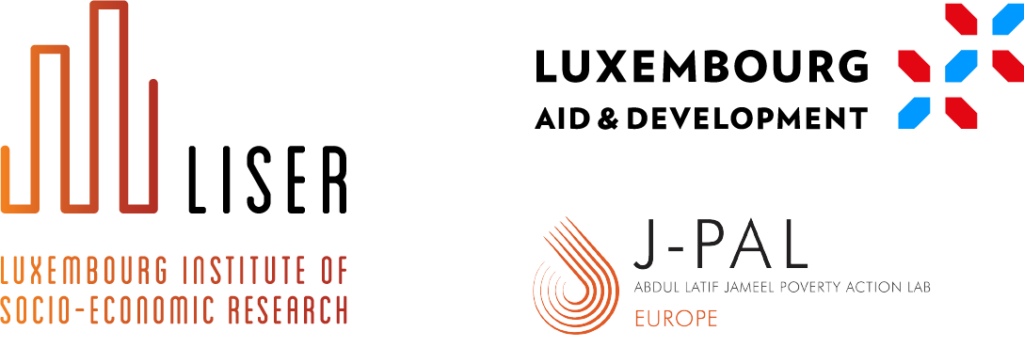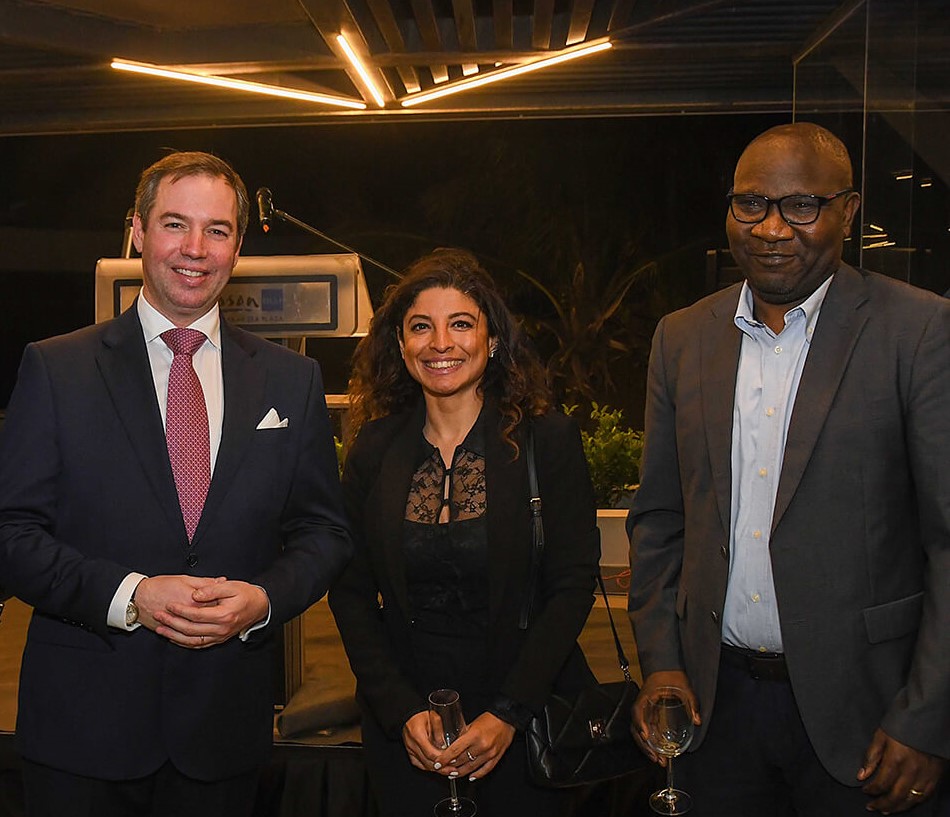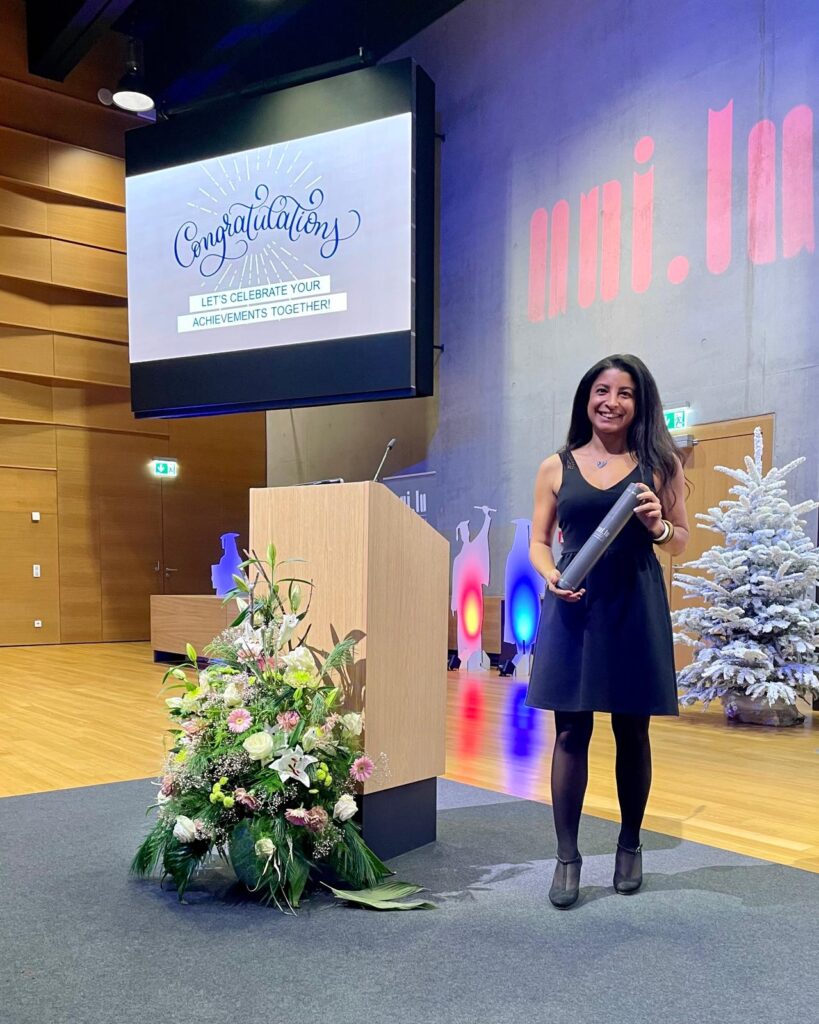In Conversation With Our Young Researchers: Rana Cömertpay
20 September 2024

Promoting social cohesion and sustainable development
Understanding the role of economics in forced displacement and conflict situations in developing countries.
What are the effects of forced migration on sustainable development in Africa? How can the transition from humanitarian assistance to sustainable development policies be facilitated to ensure equitable outcomes for all?
Rana Cömertpay is a postdoctoral research associate in the Labour Market department at the Luxembourg Institute of Socio-Economic Research (LISER) working primarily in the Crossing Borders Research Programme. She holds a PhD in Economics from the University of Luxembourg and both a Masters and Bachelors in Economics from HEC Management School of the University of Liège.
Her current research are in the fields of migration and development economics with a particular focus on forced displacement and conflict situations in developing countries. This aligns with her role within the new Development Policy Impact Analysis Unit (Cellule d’Évaluation d’Impact, CEI), a unit that works closely with J-PAL Europe, Lux-Development (LuxDev), and the Directorate for Development Cooperation and Humanitarian Affairs (Ministry of Foreign and European Affairs) of the Grand Duchy of Luxembourg.
In her first paper ‘Refugee Mobility: Evidence from Phone Data in Turkey’, published by Springer, her research used advanced methods in econometrics, also borrowing from other disciplines, notably tools from geography such as ArcGIS, to answer economically relevant questions. Rana did so by applying up-to-date, highly disaggregated, complex and novel datasets, such as CDRs (i.e. mobile phone data), satellite, climate and media event data, among others.
Since Rana’s initial paper, she has had many more contributions that have so-far appeared in the Journal of Development Economics, the World Bank’s Policy Research Papers and more we will detail below.

“My research in migration economics is driven by a commitment to social justice and a recognition of migration’s profound impact on societies. Through my work, I aim to contribute to the development of effective policies that promote social cohesion and sustainable development.”
Rana Cömertpay (pictured in 2023 giving a presentation in Benin)
Enhancing Luxembourg’s Development Policy through Rigorous Evidence-Based Approaches
Rana is a key member of the Research Unit on Impact Evaluation of Development Policies, in French, la Cellule d’Évaluation d’Impact (CEI). Established in 2022 at the initiative of the Directorate for Development Cooperation and Humanitarian Affairs of the Grand Duchy of Luxembourg, the CAIPD aims to provide advisory services to the Government and its implementing agency, LuxDev.

Vocational Training Programmes in Low- and Middle Income Countries: Insights from Experimental Studies
Experimental evaluations of vocational training programmes in low- and middle-income countries underscores their fundamental effectiveness in imparting new skills. However, this evidence offers a mixed picture on their short and long-term impacts on labour market outcomes as well as their cost-effectiveness. Rana’s research helps to clarify the optimal format of such programmes, to identify from existing evaluations promising strategies that appear likely to amplify impacts.

“My goal is to facilitate the transition from humanitarian assistance to sustainable development policies, ensuring equitable outcomes for all.”
Rana Cömertpay (pictured in 2023 in Senegal with (from left) HRH Prince Guillaume of Luxembourg, Rana Cömertpay and Michel Tenikue)
More precisely, Rana is evaluating the development policies in Africa in the framework of the CAIPD which has partnered with JPal-Europe. This partnership allows her Research Unit to equip the government with methodological tools for impact evaluations and programme monitoring in cooperation projects. As such, Rana is currently exploring the causal impact of vocational training for youth and female employment in Senegal.
In a newly released video, Rana shares insights on the findings of a recent study she undertook with Michel Tenikue entitled “Vocational Training and Employment in Senegal”, which addresses the critical issue of youth unemployment. Their research examines the impact of vocational training programs on employment outcomes in Senegal, using data from the Living Standards Measurement Survey.
Navigating Skills Development: a case study on technical and vocational education
Supporting interdisciplinarity and collaboration
Rana’s notes that in her research journey, which began at the University of Luxembourg, she found the Luxembourgish environment to be exceptionally supportive of interdisciplinary collaboration. Through her PhD, she engaged with top scholars in her field through local and international conferences and seminars. The institution also facilitated interactions with leading scholars via courses and funded summer schools, fostering networking and collaboration beyond her immediate field.
Additionally, the opportunity to teach in Mali provided her with valuable insights into diverse research environments, which she now leverages in her current role at LISER where she continues to work in an environment that promotes interdisciplinary collaboration. To give an example, she identifies partners in Senegal and utilises non-traditional datasets to bridge gaps between disciplines are among her tasks. Overall, her experiences in Luxembourg and beyond have equipped her with the skills and mindset to effectively navigate and promote interdisciplinary collaboration in her research endeavours.

“The research infrastructure in Luxembourg is characterised by its coherence and openness. Institutions like LISER host seminars open to all researchers, fostering collaboration. Departments are strategically located to encourage exploration of diverse regions, enhancing interdisciplinary interaction.”
Rana Cömertpay
“In Luxembourg, everyone finds their unique slice of life, thanks to the country’s openness and tolerance”
Living in Luxembourg has been a transformative experience. Although holding already both Turkish and Belgian nationalities, Rana notes that Luxembourg has become her second home. While Turkey will always be her first, Luxembourg holds a special place in my heart. Despite its small size, Luxembourg is vibrant, with diverse cultural events and a rich immigrant population. Rana points out that in Luxembourg, everyone finds their unique slice of life, thanks to the country’s openness and tolerance. Living here has broadened her horizons and deepened my appreciation for diversity and inclusion.”
Rana shares that the move to Luxembourg was relatively easy for her. Not only was it straightforward practically, but also because upon arrival, she quickly met friends who have since become like family to her.
Rana further remarks, “While the housing market can be tough and expensive, people learn to adapt and share living spaces, embracing different ways of living and supporting one another. Many people move here every day, so your experience is not unique; we all share similar journeys.”

“What I love most about Luxembourg is its vibrant, open, and international atmosphere. It is a small country, yet dynamic and connected to others in Europe, making it an exciting hub for exploration. The respect for nature is evident everywhere, with lush greenery and many opportunities for outdoor activities.”
Rana Cömertpay










